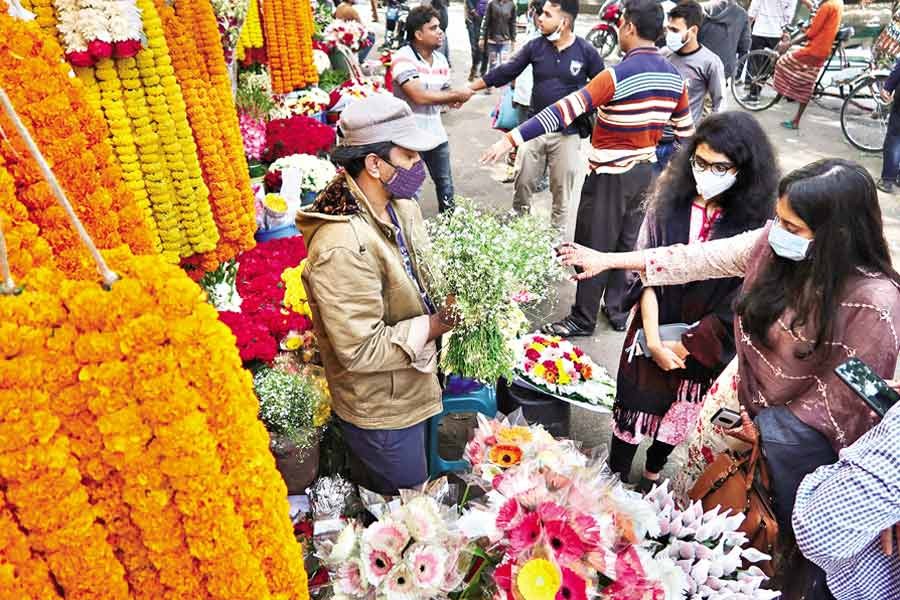The New Year has been greeted by the world with cautious optimism. Though the pandemic has still shown no sign of abating, rather raging with a vengeance across Europe, America and many other countries including Bangladesh, still humanity is not going to give up hope. For hope is more infectious than the SARS CoV-2 virus that has caused the Covid-19 disease. In Bangladesh we also want to be optimistic about the New Year. Yes, we have no dearth of hope though we have few resources, except, of course, our people. And had the people not been a resource, the year that was could be worse than it actually turned out to be. Consider the initial fears before the pandemic finally struck. Many feared, experts included, that there would be a catastrophe on a scale that the country never experienced before. The first concern that figured prominently was the country's poor state of healthcare infrastructure. Seeing the way one European country after another fell to the invisible legions of the Corona virus so helplessly despite their financial strength and highly advanced healthcare facilities, the trepidations about the unknown danger were not quite out of place. And the dreaded pandemic did finally arrive at the end of March. True, there were much suffering and many avoidable deaths, never mind the instances of no end of mismanagement. But there was no march of deaths, no street was strewn with corpses! There was fear of a famine-people dying of hunger in endless numbers in the cities and the countryside. People went hungry, no doubt about that. But we have not experienced anything like people, dogs and crows jostling to pick up edibles from the same garbage dump. Millions lost job. But things were not as bad as it was feared. The struggle is there to make both ends meet among the vulnerable sections of society. Everything is not hunky-dory. But it has not been after all catastrophic.
The mainstay of our export, the apparel sector, was thought be in its final twitch as there would be no buyers of its products from Europe and America. For a short while, especially in April and May, things looked very bleak after the shutdowns were put into effect. But once the restrictions on movements were relaxed, the industry slowly turned around. Thousands of workers were retrenched, many who could get their jobs back had to compromise on their pay. The government came up with stimulus packages to bail out the big business houses. The money would help them mainly to pay the workers. It did not always work the way it was intended; the workers in many cases were deprived. The major chunk of the stimulus money for the micro, small and the medium enterprises has not yet reached the small and micro enterprises, in particular, thanks to the formalities-happy and collateral-bound banking system.
But, overall, the problems remained within tolerable limits. The resentments at various levels did not precipitate a chaos, nor did the society fall apart.
The remittances were feared to taper off at some stage as the Middle Eastern economies where the lion's share of the remittance money comes from were already facing financial crunch with tumbling oil prices. And their condition would be worse once the pandemic-triggered economic shutdowns set in. Remittance flow did briefly shrink, in the beginning, but gradually it restored its previous level and then continued to rise, even broke past records. There were and still are warnings from experts that such buoyant trend in remittance flow is not sustainable in the long run. Assuming that the experts are right, the nation must still be thankful to the migrant workers for giving the economy some breathing space during its most critical juncture.
Health experts and the conscious sections of society resent the general public's callous attitude towards the mandatory health protocols to ward off the pandemic. No doubt, the criticism is generally true. Perhaps, they are not wholly to blame for it.
Now, as the vaccine is around, there is again reason to hope, even believe that the New Year would bring some more good news for us.


